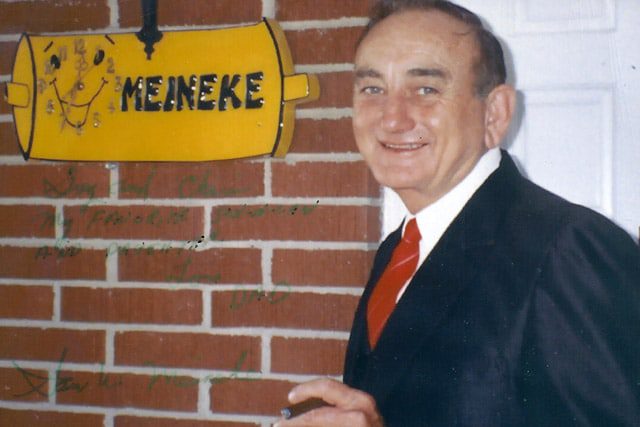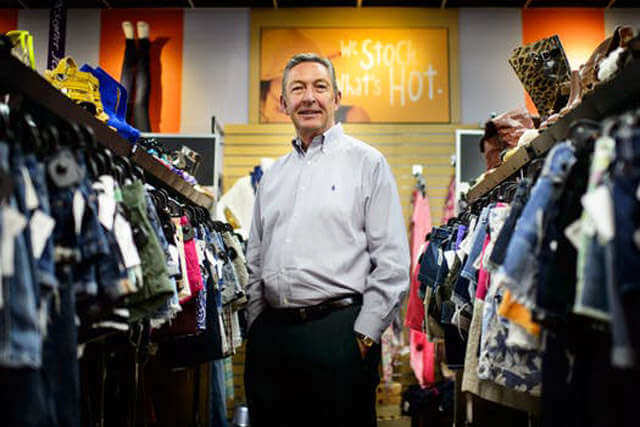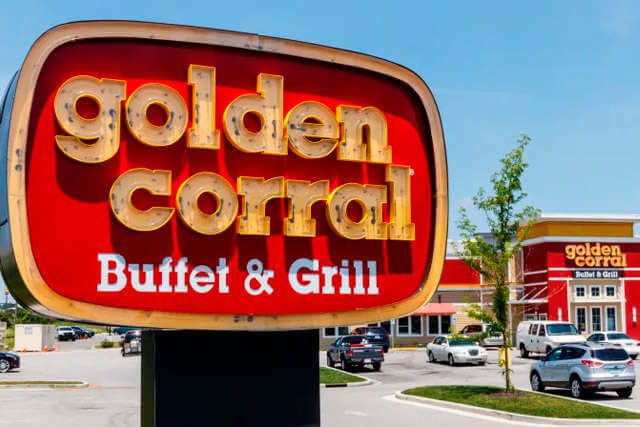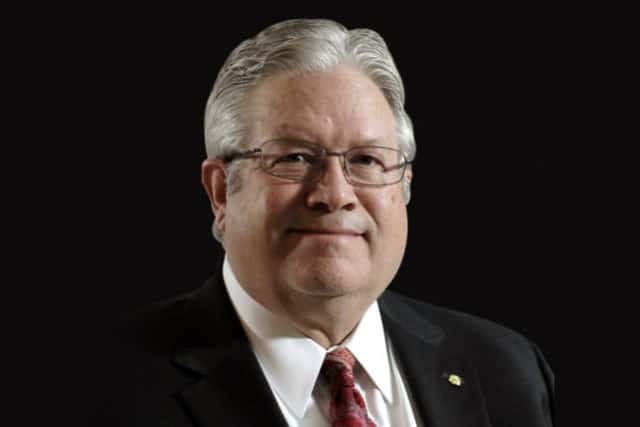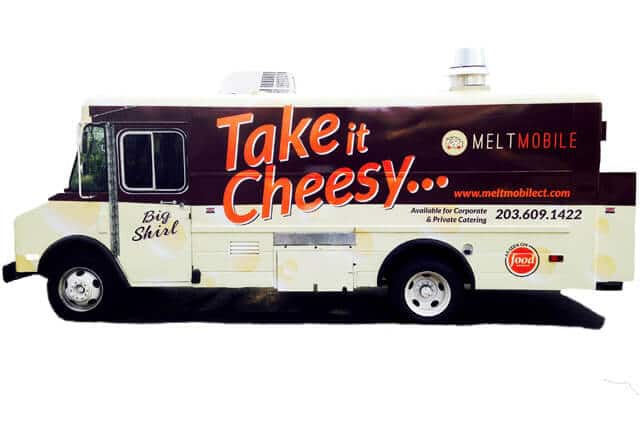Sam Meineke, Founder of Meineke Discount Mufflers franchise system
Sam Meineke was born into a sharecropping family in Idabel, Oklahoma on March 19, 1931, and lived in a small clapboard house with no utilities. They farmed 100 acres and lived on one-third of whatever they could grow; the landlord got the rest. By 1939 his brother and two sisters had married and moved away, but Sam continued to help his parents manually hoe the fields of cotton they depended on for their livelihood.
During these Depression-era years, Sam became motivated to make his dreams come true. His mother always verbalized their precarious plight and station in life. There was never enough money to pay the rent and getting evicted, with just the clothes on their backs, was always imminent. This made a huge impact on Sam.
“It was Momma’s constant talk about being thrown out that gave me a big dose of insecurity and my desire to own my own home one day. Momma referred to us as poor people, but it didn’t really hit me until I went to school and saw the other kids eating nice lunches. All I had was cornbread and a bit of dried meat, wrapped in a piece of cloth or newspaper.”
As he worked seven days a week in the cotton fields, Sam daydreamed of the future. “Like successful men, I read about in school – Henry Ford and Andrew Carnegie – I’d do something. Exactly what, I wasn’t sure.”
In search of better opportunities, the Meineke family left the Red River bottoms and cotton fields of southern Oklahoma and moved to Pasadena, Texas, the epicenter of the petrochemical industry during World War II.
“Much like the Joad family in [John] Steinbeck’s Grapes of Wrath, our belongings, everything we owned, was teeter-tottering atop a rickety old truck, which broke down a number of times during the journey.”
When his father found employment in a shipyard, Sam knew they had moved up in the world: “Our rented house was like a palace, with electricity, indoor plumbing and – wonder of all wonders – a refrigerator.”
Sam started working immediately: mowing lawns, delivering telegrams, working on a construction crew, working at a lumberyard, and working as an usher at the El Capitan movie theater. At age sixteen, Sam managed the paint department in a general store. “The owner, Mr. McMasters, a small, kindly man, became my mentor, teaching me how to figure percentages and profit margins. I was determined to get ahead.”
Sam graduated from Pasadena High School, class of 1949, and continued to work hard as a millwright apprentice, but became discouraged. After multiple strikes, he set out to find a business that would set him on his own path to success.
Before he reached the age of twenty-one, Sam bought his own business. In 1951 Sam paid $2,400 for a service station, using the money he had saved as a down payment. He persuaded the owner to let him pay the rest later on. “That’s the main reason I bought; it was something I could buy. I didn’t know any better. After I got in there and began to learn what the real world was like, it started to dawn on me what owning a business meant.”
Meineke found himself the fourth man in two years to try and make the station a success. The owner didn’t think Meineke could do it either. “I’ll never forget him telling me, ‘I don’t know why I am selling you this station. You’re not going to make it,’” Meineke recalls. For six months, Meineke struggled along, barely making ends meet.
Then one day a customer came in, asked for a dollar’s worth of gas, and Meineke decided to clean his windshield too. There was something on the inside of the glass, so Meineke jumped into the front seat to clean it off.
The customer was so impressed with Sam’s efforts that he asked for a fill-up and Meineke realized that a little extra service could pay off. “So, the next customer that came in – I couldn’t do enough for him. I swept out his floorboard, literally washed his car for him. It wasn’t long until I had customers lined up on Friday nights when they got paid. When I woke up at 4 A.M. to go to work, I’d start telling myself, ‘This is going be a good day’ and continue that line of thinking as I got in my car and through the day. You’ve got to prime yourself for success, visualize it.” Meineke’s hard work and superior service finally paid off as the number of customers steadily increased.
One year later, 1952, Sam took on a partner. “Edward Bass had a service station across town. We’d gone to school together. He was a grade ahead and I knew he was a nice guy and we had a lot in common.”
They shared the pleasure and pain of the service station business, relieving the tension by talking to each other. “We’d both, by this time, come to the conclusion that we’d never meet our goals in the service station business, so we started talking about pooling our money, going into another venture.”
Bass sold his station, came in with Meineke, and they put their extra money into different investments: “a bogus uranium mine (we lost $2,000), a second service station, some watermelon stands, fiberglass boats, an eighteen-wheeler. None of those made any money… but we kept plugging away.”
Meineke and Bass learned from each failed business before finally realizing success. “And then we clicked in business … with an auto parts store. It did so well that we opened a second, then a third. Eventually, we had a dozen Bass and Meineke Auto Parts Stores.”
While Sam Meineke and Edward Bass were partners, they shared many experiences and worked well together but, to Sam, setting up the business proved to be more enjoyable than managing it: “By the time I sold [Bass and Meineke] to Edward, it was all about the management of the business. Which included an office, bookkeepers, a warehouse, supervisors, a program, a training manual; it was all going very smoothly but it was also beginning to be less entertaining for me. We faced the same problems every day.”
The first store evolved into a successful chain of twelve Bass and Meineke Auto Parts locations, and by 1970 had become a well-known regional auto parts supply powerhouse. The men parted on a positive note. “Edward and I are still best friends, we just got a divorce. But we still get together on occasion and talk about business.”
Meineke immediately began searching for a new business challenge and different avenues of investment, leading to the muffler business. “The only major muffler company in 1970 was Midas. There were smaller independents with inventories in the $500 to $1,000 range. I decided something could be done in the midsize operation and opened a muffler shop in Pasadena with a $5,000 inventory.”
His experiences in the service station business and in the auto parts business gave Meineke the ability to structure successful muffler shops. In response to the needs of the muffler business, Meineke designed his shops to service enough customers in two or three hours to cover expenses and make a small profit. Meineke‘s program consistently beat the competition on convenience, price and service. These innovations led to success, and within six months he had three muffler shops in operation.
Shortly after the establishment of his first muffler shops in 1971, Meineke hired Harold Newell, a former operations manager with AAMCO Transmissions. Meineke then proceeded to develop the Meineke Discount Muffler concept into a viable and highly sought-after franchise that became a well-known international brand.
Meineke Discount Mufflers was officially born, and the first franchise was sold in 1972. Meineke continued to work hard at his business. He owned ten shops personally, testing all his new ideas there before passing them on to the franchisees.
Jeanne Kennedy, the first female franchise holder of a Meineke Discount Muffler shop, got into the business in 1973. She had an extensive business background and was looking for a family enterprise where her husband, son, two daughters, and in-laws could all participate.
“We were the sixth Meineke franchise in the nation. When we opened our first shop, Sam Meineke came out and helped us get things organized. Sam is a good people person, and not too many successful men retain that.”
Meineke’s intense desire to succeed, with his work in developing his program, helped the franchisees to succeed. First, he built a warehouse for his inventory, then initiated a well-executed distribution network to his shops. Closely managing and turning inventory was key to controlling gross profit.
In addition, Meineke located his shops as close to the competition (Midas) as possible. With his leaner, profitable concept, he was able to grow the brand quickly and was inundated with potential franchisees wanting to learn more about the brand. The success of Meineke’s program and management showed in his shops. Of the first 100 franchises, only two failed.
“By the time I got into franchising, I had enough experience in operating and managing the business that I could really help my franchisees, which is what I really enjoyed. My program was such that I weeded out most of the errors. I was lucky to go into business at age twenty-one, I learned from my mistakes and failures, that’s part of what business is. Plus, I was motivated. I had a lot of energy. To correct a mistake, it either cost time, money, or both. Mine was always both, but I’m a plodder and I just kept moving forward. I was able to attain my goals and make my dreams come true with hard work, perseverance and learning the art of business. The Meineke concept turned out to be a great business. Particularly the franchising, that was the most exciting thing I have ever done. I don’t think I’ll ever top it.”
Although Meineke sold his namesake franchise and the exhaust distribution warehouse a few years ago, he is extremely proud the Meineke brand is still a successful, internationally known and viable franchise.
Today, Sam Meineke enjoys time with his wife Sadye, his family, and continues to work hard and manage his various investments. Not one to sit still, he is always looking for challenges in the business world.
Many thanks to the sources for this history: Ken Walker, Sam Meineke, Catherine E. Haney, with Greg Johnson, January 21, 2015.
Do you have questions about franchising?
MSA Worldwide provides expert guidance on developing a successful and sustainable franchise system. Contact us today for a complimentary consultation.

